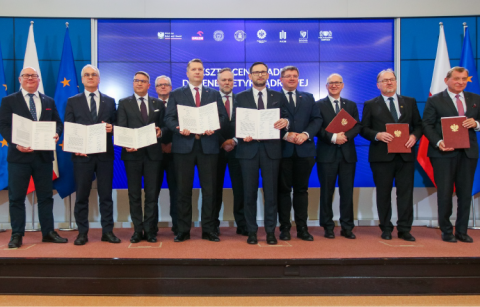Training staff for the nuclear power industry is the main assumption of the letter of intent signed by Przemysław Czarnek, the Minister of Education and Science, Daniel Obajtek, the President of the Management Board of PKN Orlen and six rectors of technical universities, including prof. Teofil Jesionowski, the Rector of the Poznan University of Technology.
The Minister of Education and Science pointed to the need for cooperation between science and business, which is essential for mutual development. He emphasized that low-emission energy is one of the key challenges for the Polish economy in the forthcoming years.
The main purpose of the letter of intent is to develop the education program in the field of nuclear energy (NPP) and to organize and launch first and second-degree studies with a general academic profile starting from the academic year 2023/2024.
The document was signed by:
Przemysław Czarnek, Minister of Education and Science,
Daniel Obajtek, President of the Management Board of PKN Orlen
prof. Teofil Jesionowski, Rector of the Poznan University of Technology
prof. Arkadiusz Franciszek Mężyk, Rector of the Silesian University of Technology
prof. Christopher Wilde, Rector of the Gdansk University of Technology
prof. Jerzy Lis, Rector of the AGH University of Science and Technology in Krakow
prof. Krzysztof Zaremba, Rector of the Warsaw University of Technology
prof. Arkadiusz Kazimierz Wojs, Rector of the Wrocław University of Science and Technology
The Rector of the Poznan University of Technology prof. Teofil Jesionowski emphasized that Poland is facing a strategic challenge regarding environmental, climate and, above all, energy transformation. "Our universities are extremely important in this process, they undoubtedly provide potential for scientific development. We have high qualifications in the field of energy, and energy transformation, including nuclear energy, but we also have amazing competences in education" - noted prof. Jesionowski.
Prof. Jesionowski announced that universities will educate not only nuclear engineers but also experts responsible for critical infrastructure, automation and robotics.


